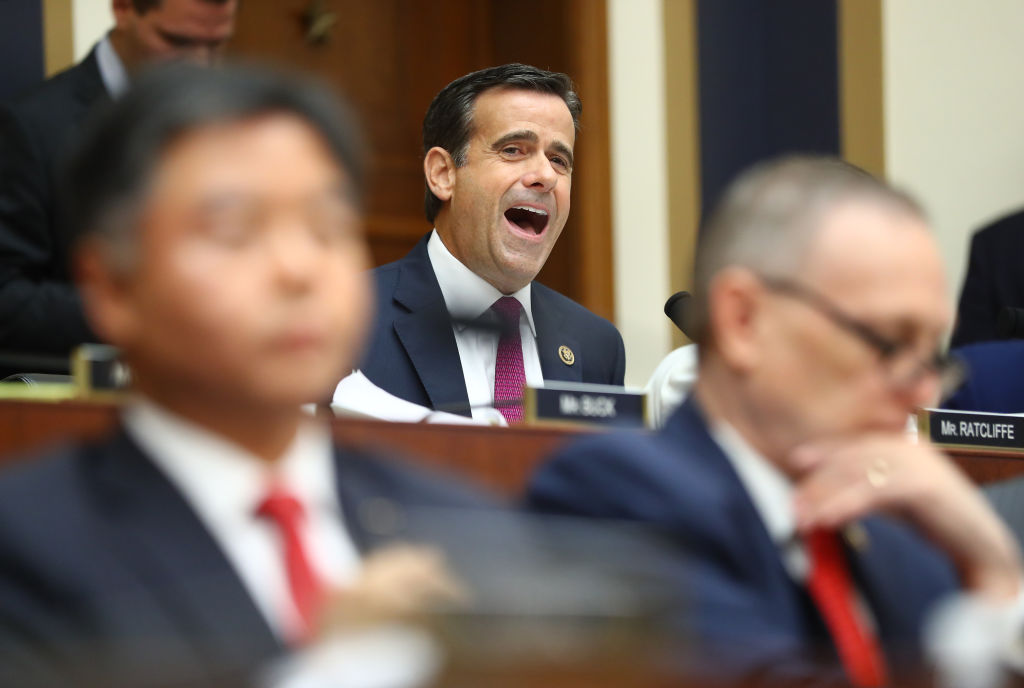Richard Nixon wasn’t fond of US intelligence, and neither was his alter ego, Henry Kissinger. But none of us who have served in intelligence could have imagined a president like Donald Trump with no interest in facts of any sort, who talks of “reining in” a US Intelligence Community that has “run amok.”
Now, Trump is prepared to compound the damage by appointing to be Director of National Intelligence (DNI) an obscure member of Congress, John Ratcliffe, whose only qualification should disqualify him – blind loyalty to the President.
“Telling truth to power” may sound trite, but it was never in recent history more important to the American democracy than it is now.
I had the great privilege of chairing the US National Intelligence Council in the Obama administration. The Council, or NIC in Washington shorthand, draws on all the intelligence agencies in providing intelligence to senior policymakers, especially the president. We also worked closely with colleagues who prepared the President’s Daily Brief (PDB), perhaps the most expensively-produced pamphlet since the Gutenberg bible. Obama got his PDB every morning on an iPad and read it on his own over breakfast. We were delighted when it came back with traces of egg, for it meant he had read it. Later in the morning, he received a separate oral intelligence briefing.
It is hard for me to imagine how hard the task must be now. The usual PDB is still produced for other senior officials, but the president gets a kind of tablemat, more images than words and extremely careful about presenting bad news. I am told he does take a verbal briefing several times a week.
In most administrations the focal point for intelligence, and for the NIC, is the National Security Council, and especially its policy committees, the Principals Committee, the department heads in State, Defense and the other national security departments, and the Deputies Committee – the number twos or threes in those departments. In the Obama administration, the Deputies met virtually every day to analyse issues and tee them up for decision.
Now, the committees seldom meet, and what passes for “policy” is rendered in tweets or held closely by the National Security Advisor, John Bolton, with Trump’s Secretary of State, Mike Pompeo, mostly confined to speechifying to feed the president’s ego. In those circumstances, it is not at all clear that intelligence is even in the game.

Nominating Ratcliffe introduces a dangerous new threat to US intelligence. His predecessor, Dan Coats, had little experience in intelligence but long experience as a legislator and ambassador. And he had the respect of his peers across party lines. He and his colleagues held firm to facts, especially in his annual threat assessment testimony to Congress, which the NIC prepares – plainly saying, for instance, that North Korea’s nuclear program is advancing never mind the president’s self-congratulation of his showy summits with Kim Jong-un.
Ratcliffe is a far cry from Coats. He arrives unknown by senators and unsettling in his unfitness, even in the eyes of many Republican Senators. His entire experience is a term on the House Intelligence Committee (and experience as a prosecutor of terrorists, which, in Trumpian fashion, he dramatically exaggerates). He seems more interested in investigating the intelligence agencies than in using them to provide any strategic backdrop for American policy. There is no reason to believe he would stand intelligence’s ground, as Coats did, against the president’s delusions.
Ratcliffe’s appointment is entirely consistent with Trump’s pattern – his choices for top jobs have been either visibly incompetent or opposed to the mission of the agency they are to head, or both. Or he simply has left top jobs unfilled. America now has a government of actings and absents. In this case, worse still, Trump is trying to deny Deputy DNI Susan Gordon, a career professional, even that acting position in favour of his own personal nominee.
A colleague and I just published Telling Truth to Power: A History of the National Intelligence Council with Oxford University Press. In it, the past eight chairs of the NIC reflect on their tenures. None had to contend with a Trump, but all recall the ups and downs of getting to policymakers and sustaining credibility with them. My boss, DNI James Clapper, used to say that there are two kinds of foreign policy outcomes in Washington, policy successes and intelligence failures, and the NIC chairs are unstinting in admitting when they – and intelligence – got it wrong.
But they, and the men and women who work for them, were and are dedicated professionals. They serve their country, not any political party. They are not pushing any partisan line, let alone seeking to glorify any individual. “Telling truth to power” may sound trite, but it was never in recent history more important to the American democracy than it is now. And it was never more in peril.

